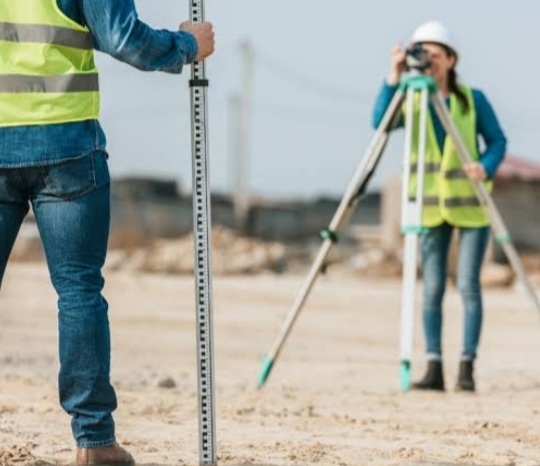A land surveyor is a trained professional responsible for measuring and mapping land to determine property boundaries, land features, and legal descriptions. Their work is crucial in real estate transactions, construction projects, and land development. They use advanced tools like GPS, total stations, drones, and GIS software to create accurate maps and reports.
How a Land Surveyor Helps Buyers and Sellers
Whether you're buying or selling property, a surveyor can provide valuable insights that help prevent disputes and ensure a smooth transaction.
For Buyers:
-
Confirms Property Boundaries
- Before purchasing, a survey ensures that the property lines align with what is stated in the deed.
- This prevents surprises like realizing later that part of the property is actually owned by someone else.
-
Detects Encroachments
- A surveyor checks for any encroachments, such as a neighbor’s fence, driveway, or building crossing into the property.
- If issues exist, they can be addressed before buying rather than leading to legal disputes later.
-
Verifies Lot Size and Acreage
- Some properties are advertised with incorrect lot sizes. A survey confirms the actual land area, preventing buyers from overpaying for less land.
-
Checks Easements and Rights-of-Way
- Easements give others legal rights to use part of the property (e.g., utility companies running power lines).
- A surveyor identifies these restrictions, so buyers know if a portion of the land is subject to use by others.
-
Assesses the Land for Development
- If a buyer plans to build on the property, a survey identifies elevation changes, flood zones, wetlands, and soil conditions that could impact construction.
- This helps determine whether the land is suitable for a home, driveway, or other structures.
For Sellers:
-
Provides Proof of Property Lines
- A recent survey reassures buyers that the property dimensions are accurate, reducing hesitation in making an offer.
-
Prevents Legal Disputes
- Without a survey, buyers may challenge property boundaries after the sale, leading to expensive legal battles.
- Having an up-to-date survey helps protect the seller from future liability.
-
Resolves Boundary or Title Issues Before Selling
- If discrepancies exist between the property deed and actual land measurements, they can be corrected before listing the property.
- This avoids delays in closing or renegotiations.
-
Clarifies Easements and Land Restrictions
- If the property has easements, setbacks, or zoning restrictions, a survey gives buyers full disclosure, preventing misunderstandings that could cause deals to fall through.
-
Increases Property Value
- Buyers are often more confident purchasing land with a recent survey, potentially increasing the selling price.
- If an owner can show that no disputes exist, it makes the property more attractive.
Key Types of Surveys Useful in Real Estate Transactions:
- Boundary Survey – Defines property lines to prevent disputes.
- ALTA/NSPS Survey – A high-detail survey required by lenders and title companies in commercial transactions.
- Topographic Survey – Shows elevation changes and land features, helpful for construction.
- Subdivision Survey – Divides land into lots for development.
- Mortgage/Title Survey – Confirms property lines for lenders and title insurance.
Final Thoughts
For both buyers and sellers, hiring a land surveyor ensures a property transaction is based on accurate, legal information. It helps avoid costly mistakes, legal issues, and unexpected challenges down the line. Before making a deal, investing in a survey can save time, money, and headaches.












No comments:
Post a Comment